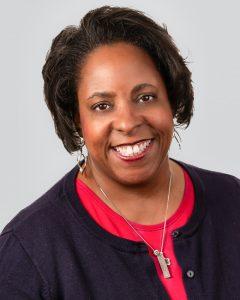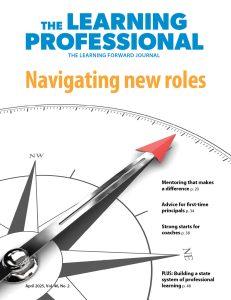Two school districts have joined the Redesign PD Community of Practice, bringing to 22 the number of school systems collaborating to improve professional learning systems and share their progress with districts across the country.
Metro Nashville Public Schools in Tennessee and Guilford County Schools in Greensboro, North Carolina, will participate in the remaining in-person and virtual gatherings of the district teams until the community finishes its work next year.
The two districts have completed the vision and goal-setting phases of addressing their critical professional learning priorities during initial site visits with Learning Forward staff members. Both Metro Nashville and Guilford County have selected the coherence and relevance problem of practice: “How do we ensure that decisions made at central office, school, and teacher levels ensure both coherent and relevant learning experiences for teachers that improve their practices?”
“Professional development is on the radar of any large school district,” says Nakia Hardy, chief academic officer for Guilford County, a 72,000-student district with 127 schools. “We want to focus on leveraging resources to reach each and every teacher with the support they need.”
Learning Forward coordinates and facilitates the work of the community for the Bill & Melinda Gates Foundation. Facing common challenges, teams from each district are working to create more coherent professional learning systems and measure how learning for teachers impacts their practice and leads to better outcomes for students.
The teams will continue to work together and share their progress through the middle of 2017. Learning Forward is capturing stories on the work of the districts and sharing lessons learned with members and the education field more broadly.
Connecting professional learning
Both Guilford County and Metro Nashville leaders say it’s important that professional learning opportunities are not disjointed. Tonisha Walden, Guilford County’s director of professional development, says leaders have worked hard to expand professional learning opportunities, but adds, “One of the pieces we’ve struggled with is how those offerings connect with one another and how we monitor and sustain that down to the school level.”
Hardy adds that professional learning should also be connected to “some improvement outcomes,” whether related to academics or school climate, such as better attendance.
In the 88,000-student Metro Nashville district, Monique T. Felder, chief academic officer, said leaders were drawn to join the community because, while professional learning is offered, “it isn’t always relevant, executed well, aligned, coherent or assessed.”
The Metro Nashville team will focus on coherence and also hopes to tackle the challenges of sustaining the learning teachers receive and moving away from an “overreliance on the training-the-trainer model,” Felder says.
The two new districts are also looking forward to sharing their strategies with other districts in the community. For example, Metro Nashville Public Schools has worked to give school teams a time to plan as part of their regular professional learning agenda.
The community did not expect to add more districts, but Metro Nashville and Guilford County expressed interest in joining because their superintendents have worked in districts that were already involved. Guilford County Superintendent Sharon L. Contreras previously served as superintendent for the Syracuse (New York) City School District, and Shawn Joseph, Metro Nashville’s new director of schools, worked as the deputy superintendent of teaching and learning in the Prince George’s County Public Schools in Maryland.
Both Syracuse and Prince George’s County have been part of the community since it began last year, so Contreras and Joseph were already familiar with the goals and the commitment involved.
“I’m really excited about both systems joining the community,” says Michelle King, who facilitates the community for Learning Forward. “In Metro Nashville, the common theme was a passion and commitment to develop ‘clarity and coherence in the system.’ Similarly, in Guilford County, there is an intention to focus on coherence in order to create and sustain a learning organization.”



![Poil blog v1[1]](https://learningforward.org/wp-content/uploads/bb-plugin/cache/poil-blog-v11-custom_crop.jpg)




